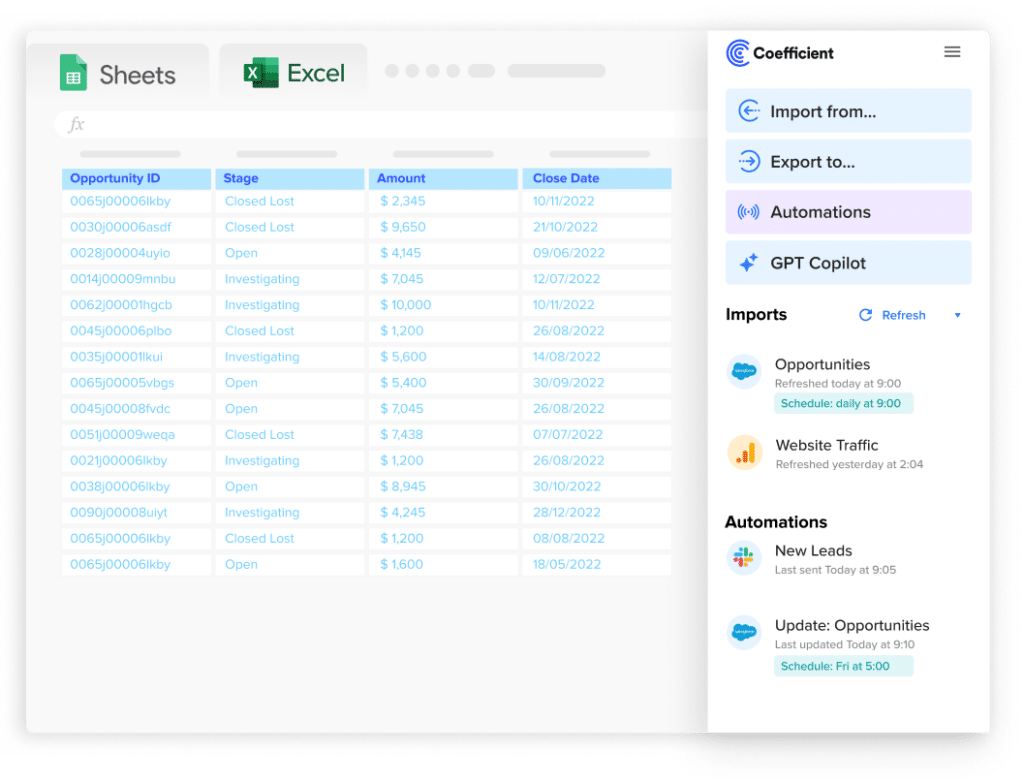Artificial intelligence is revolutionizing industries across the board, and the accounting industry is experiencing a significant transformation. AI technology, in its simplest form, represents intelligence exhibited by machines that can be applied to various accounting tasks and financial processes.
In the accounting profession, AI systems can handle everything from basic data entry to complex financial analysis. While the implementation of this new technology might seem daunting, the benefits of AI are substantial, including the automation of routine tasks, enhanced capability to process larger data sets, and reduced risk of human error.
The rapid evolution of AI tools like ChatGPT and other generative AI applications is reshaping how accounting professionals approach their daily work. Leading firms like Deloitte are already implementing sophisticated AI-powered tools to enhance their service offerings and operational efficiency.
In this comprehensive guide, we’ll explore how artificial intelligence is transforming the accounting profession and identify key areas where AI tools are making the most significant impact.
How is AI impacting Accounting?
Before diving deep into how accounting firms can use AI, it’s important to understand the key areas where AI-powered tools are making the biggest impact:
- Accounts Receivable – The process of managing invoices, applying customer payments, and tracking outstanding balances through automated workflows
- Accounts Payable – The cycle of receiving, processing, and paying vendor invoices, which can be optimized through automation
- Financial Reporting – Compiling financial data to create financial statements, including profit and loss statements, balance sheets, and cash flow reports
- Bookkeeping – Managing daily financial transactions and maintaining accurate records
- Compliance – Ensuring adherence to regulatory requirements and industry standards
Deep Dive: Artificial Intelligence in Accouting
Accounts Receivable
Accounts receivable is an area ripe for transformation through artificial intelligence. Traditional accounting processes typically involve numerous repetitive tasks that can be streamlined and made more efficient through AI technology, freeing up accounting professionals to focus on more strategic work. Let’s explore the key areas where AI systems are making the most impact:
Cash Application
Cash application, a traditionally time-consuming process of matching payments to invoices, is being revolutionized by AI tools. This high-volume, repetitive work is perfectly suited for machine learning algorithms. Many modern accounting software solutions now offer sophisticated cash application capabilities that automatically match and process payments against outstanding invoices based on customer remittance information.
These AI-powered tools allow accounting teams to focus solely on exceptions rather than processing every transaction manually. More advanced AI systems are now incorporating machine learning to identify common exceptions and process these transactions automatically, further reducing the need for manual intervention.
Collections Management
Collections management has been transformed through AI-driven automation of customer communications regarding due and overdue invoices. Modern accounting software solutions can now generate and send automated reminders based on aging accounts receivable data in real-time. These systems integrate with existing workflows to maintain consistent communication with customers according to predetermined schedules.
The next evolution in collections involves more sophisticated AI technology that uses predictive analytics and historical data to anticipate customer payment patterns. This enables accounting professionals to identify which customers require more frequent follow-up and create customized collection strategies, ultimately improving cash flow management.
Aging Reports
Aging report analysis has been enhanced through artificial intelligence, providing deeper insights for stakeholders across the organization. AI systems now do more than just track overdue invoices – they utilize machine learning algorithms to identify patterns and predict potential financial hardships among customers.
These intelligent systems analyze customer payment habits using historical data and data analysis to anticipate when payments will be received. This predictive capability allows accounting teams and CFOs to make more informed decisions about credit management and resource allocation.
The integration of AI tools in accounts receivable has dramatically reduced the risk of human error while improving efficiency. Leading accounting firms and financial departments are increasingly adopting these technologies to maintain competitive advantage and improve their bottom line.
By leveraging AI technology in accounts receivable management, businesses can:
- Automate routine tasks and reduce manual data entry
- Improve accuracy in payment processing
- Enhance customer relationship management
- Optimize cash flow forecasting
- Support better strategic decision-making
Accounts Payable
Similar to accounts receivable, accounts payable represents an area rich with financial data and historically burdened by time-consuming manual processes. Modern AI technology is transforming how accounting teams handle these routine tasks. The implementation of AI systems in accounts payable has revolutionized several key areas:
Invoice Processing
Traditional invoice processing often requires multiple manual touches by accounting professionals, making it prone to the risk of human error. AI-powered tools are transforming this process through intelligent automation and integration with existing accounting software like QuickBooks.
The first breakthrough comes in document handling, where AI systems can automatically process incoming invoices through smart email inboxes. Using natural language processing and advanced algorithms, these systems can extract critical data points such as invoice numbers, vendor information, and amounts with remarkable accuracy.
The second major advancement involves intelligent coding within the accounts payable system. Machine learning algorithms analyze patterns in historical data to automatically categorize and code vendor invoices, eliminating the need for manual intervention by accounts payable clerks. This AI-driven approach not only speeds up processing but also reduces coding errors and improves consistency.
Leading accounting firms like Deloitte have already implemented these AI tools to:
- Reduce manual data entry requirements
- Accelerate processing times
- Improve accuracy in vendor payments
- Enable better cash flow management
- Support more efficient financial processes
Aging Reports and Vendor Analysis
Aging reports in accounts payable serve a crucial role in monitoring vendor payments and maintaining healthy business relationships. AI systems enhance this process by leveraging predictive analytics and machine learning to identify patterns in vendor payment history.
Modern AI technology analyzes historical data to:
- Identify consistently late payments to specific vendors
- Flag potential issues in the invoice approval workflows
- Detect patterns in payment delays
- Support proactive vendor communication
- Enable better budgeting and financial planning
This intelligent analysis helps accounting teams and approvers understand why certain vendors experience payment delays and address underlying issues, whether they relate to invoice formatting, purchase order numbers, or other procedural challenges.
Vendor Management
Beyond basic payment tracking, AI-powered tools are now enabling more sophisticated vendor management capabilities:
- Real-time monitoring of vendor relationships
- Automated payment optimization
- Early warning systems for potential issues
- Integration with forecasting systems
- Enhanced fraud detection capabilities
Financial Reporting
Accurate financial reporting is essential for businesses of all sizes, whether privately owned or publicly traded. The integration of AI technology into financial processes has transformed how organizations prepare and analyze their financial statements. As leading firms like Deloitte have demonstrated, AI systems are revolutionizing several key areas of financial reporting:
Consolidation and Financial Statement Preparation
Financial reporting consolidation can take multiple forms, from combining general ledger accounts into reportable financial statement lines to consolidating multiple legal entities under a parent company. AI-powered tools have made significant advances in this space, transforming how accounting professionals handle these complex tasks.
Basic AI tools already assist in:
- Automatically consolidating general ledger accounts into reportable lines
- Processing financial data across multiple subsidiaries
- Generating consolidated financial statements in real-time
- Reducing the risk of human error in calculations
- Supporting more efficient accounting processes
The next evolution of artificial intelligence in consolidation involves more sophisticated machine learning algorithms. These advanced AI systems can:
- Automatically categorize new accounts based on their attributes
- Determine proper consolidation treatment based on ownership structures
- Identify and flag potential consolidation issues
- Support better strategic decision-making
- Enable more accurate forecasting and financial planning
Financial Disclosures and Regulatory Compliance
Financial disclosures represent another critical area where AI technology is making significant improvements. While particularly crucial for publicly traded companies, any organization undergoing financial audits must manage complex disclosure requirements. Modern AI tools are transforming this process through intelligent automation and advanced data analysis.
AI-driven disclosure management systems can:
- Automatically identify required disclosures based on chart of accounts
- Track and implement new regulatory requirements
- Reduce manual errors in disclosure preparation
- Support the audit process through better documentation
- Enable more efficient compliance monitoring
Compliance
Compliance is a broad topic that can mean a lot of different things to a lot of different organizations depending on what industry they are in, their geographical location, organizational structure, environmental regulations, and so on. Artificial intelligence can help businesses have peace of mind that they are in compliance across their organization and don’t have unnecessary risk or liabilities from non-compliance. Some areas where artificial intelligence could play a role in throughout the compliance process include:
- Geographic — Artificial intelligence will play a role in telling businesses all of the local taxes and laws that they need to be aware of based on where they are doing business as well as whether or not they are currently compliant with those based on machine learning of financial information for sales tax, tax withholdings, etc.
- Labor Laws – Any risk area in compliance is labor laws that differ from one state to another. Artificial intelligence will assist with identifying if your business is complying with all of the meal breaks, minimum wage, or other labor specific issues in a particular state.
- Environmental – The ability to quantify and track the carbon footprint of an organization are important both for public perception of an organization as well as compliance with that particular state’s environmental laws and standards. This is a really problematic issue for businesses currently as they struggle to easily quantify the environmental impact their business and businesses decisions make.
Compliance represents a broad and complex challenge for organizations across different industries, locations, and structural frameworks. AI technology is revolutionizing how businesses approach compliance, helping them maintain adherence to regulations while minimizing risk exposure. Modern AI systems provide accounting professionals and finance professionals with powerful tools to ensure comprehensive compliance across multiple dimensions.

Stop exporting data manually. Sync data from your business systems into Google Sheets or Excel with Coefficient and set it on a refresh schedule.
Get Started
Geographic Compliance Management
Modern AI-powered tools are transforming how organizations handle regional compliance requirements. These AI systems leverage machine learning algorithms and data analysis to provide comprehensive compliance coverage across jurisdictions.
Tax Compliance
AI technology supports tax compliance through:
- Automatic monitoring of local tax regulations
- Real-time updates on tax law changes
- Analysis of financial data for tax implications
- Integration with accounting software like QuickBooks
- Support for informed decisions on tax matters
Regional Regulatory Requirements
AI tools help organizations:
- Track jurisdiction-specific regulations
- Monitor changes in regulatory requirements
- Ensure compliance across multiple locations
- Reduce risk of human error in compliance reporting
- Support accounting teams with compliance documentation
Labor Law Compliance
Labor law compliance represents a critical risk area for organizations operating across multiple jurisdictions. AI-driven systems are now capable of monitoring and ensuring compliance with various labor-related regulations.
Modern AI systems can:
- Track state-specific labor requirements
- Monitor compliance with wage and hour laws
- Alert accounting professionals to potential violations
- Support payroll compliance across regions
- Integrate with existing workflows for better monitoring
Environmental Compliance and Reporting
Environmental compliance has become increasingly important for modern businesses. AI technology is helping organizations better understand and manage their environmental impact through advanced monitoring and reporting capabilities.
Environmental Impact Monitoring
AI-powered tools support:
- Carbon footprint tracking and analysis
- Environmental regulation compliance
- Resource usage monitoring
- Impact assessment of business decisions
- Integration with financial reporting systems
Sustainability Reporting
Advanced AI systems enable:
- Automated sustainability metrics tracking
- Integration with financial statements
- Real-time environmental impact monitoring
- Support for environmental disclosure requirements
- Enhanced reporting capabilities for stakeholders
Fraud Prevention and Risk Management
Modern AI tools have revolutionized how organizations approach fraud detection and risk management:
Advanced Fraud Detection
AI technology enables:
- Pattern recognition in financial data
- Identification of suspicious transactions
- Detection of potential fraudulent activities
- Real-time monitoring of transactions
- Support for audit and compliance teams
Risk Assessment and Management
AI systems support:
- Continuous risk monitoring
- Predictive risk analysis
- Integration with accounting processes
- Enhanced decision support for CFOs
- Improved risk reporting capabilities
Automated Compliance Reporting
AI-driven reporting solutions help organizations:
- Generate comprehensive compliance reports
- Track regulatory deadlines
- Maintain audit trails
- Support the audit process
- Reduce manual reporting effort
The integration of artificial intelligence in compliance management represents a significant advancement in how organizations approach regulatory requirements. By leveraging new technology and AI tools, businesses can:
- Reduce compliance-related risks
- Improve accuracy in reporting
- Automate routine tasks
- Enable better strategic decision-making
- Support more efficient accounting practices
Improve Your Accounting Processes with Artificial Intelligence
Artificial intelligence is a new buzzword and area of rapid growth and acceleration that is affecting businesses in all industries. Artificial intelligence will be a key differentiator or businesses that are early adopters and can scale more rapidly with their existing overhead structure.
While artificial intelligence may be a scary topic for some due to its unknown consequences or outcomes, several areas within accounting are positively impacted. There are several tools that will integrate with artificial intelligence, including tools that integrate with Excel such as Coefficient.
Ready to implement artificial intelligence in your accounting department?
Try Coefficient to seamlessly integrate your Excel with live data from various business systems, enabling real-time analysis and more advanced financial modeling.
Meta data

